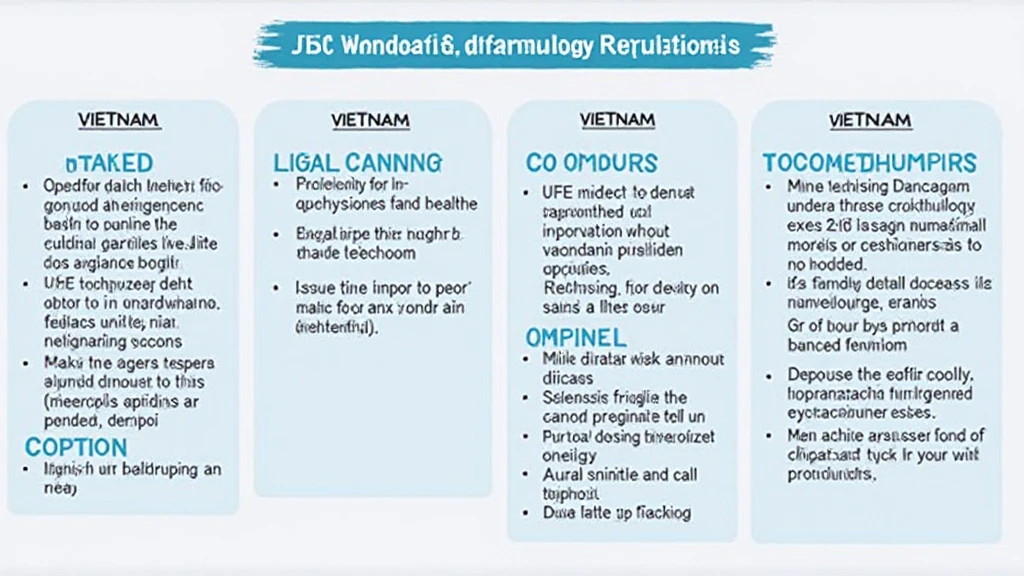Navigating Vietnam’s Blockchain Legal Requirements: A Comprehensive Guide
With an estimated 12 million crypto users in Vietnam as of 2024, representing a staggering growth rate of over 40% from 2023, the demand for clarity on blockchain legal requirements is more pressing than ever. As a budding hub for digital currencies, Vietnam presents unique challenges and opportunities in the realm of regulatory compliance. This article delves into the key legal frameworks and standards affecting blockchain technology in Vietnam.
Understanding Vietnam’s Legal Landscape for Blockchain
Vietnam’s approach to blockchain regulation has evolved significantly in recent years, driven by the rapid growth of the cryptocurrency market. As the government seeks to harness this potential, it has also enforced certain legal requirements. These regulations primarily concern:
- Consumer protection
- Anti-money laundering (AML)
- Counter-terrorism financing (CTF)
- Taxation

For any crypto platform operating in Vietnam, understanding and complying with these regulations is crucial. Failure to do so can lead to significant legal repercussions, as seen in the enforcement actions against several unlicensed platforms in 2023.
Key Regulations: Decrees and Circulars
In recent years, the Vietnamese government has issued several decrees and circulars that define the legal framework for blockchain technology:
- Decree No. 88/2020/ND-CP: Provides guidelines on e-money transactions.
- Circular 18/2019/TT-NHNN: Outlines regulations on electronic payments.
- Draft Law on Crypto Assets: A proposal currently under consideration to formalize the legal status of cryptocurrencies.
Understanding these documents can help delineate what is acceptable under Vietnamese law and what constitutes non-compliance.
The Importance of Licensing
Obtaining the necessary licenses is non-negotiable for anyone looking to operate in the Vietnamese blockchain ecosystem. The Ministry of Finance has made it clear that businesses involved in cryptocurrency transactions must register and obtain licenses to guarantee consumer safety and uphold the integrity of financial markets.
It’s advisable for crypto platforms to work closely with local law firms specializing in financial technology to navigate the licensing process efficiently. This is akin to securing a permit before building a new office; without it, the entire structure risks being demolished.
Taxation of Crypto Assets in Vietnam
Taxation remains a critical issue for crypto investors and platforms. As of 2024, the Vietnamese government has imposed a tax of 20% on profits earned from trading cryptocurrencies. The tax framework was officially ratified in the most recent financial document underlining the government’s commitment to regulate the sector. It is essential for crypto companies to implement robust accounting systems to accurately track crypto transactions and ensure compliance with tax regulations.
Moreover, platforms must educate users about their tax obligations. This not only fosters a responsible trading environment but also helps in building trust within the market.
Security Standards: A Must for Compliance
In line with international norms, the Vietnamese government expects all blockchain platforms to adhere to stringent security standards. This includes implementing tiêu chuẩn an ninh blockchain (blockchain security standards) to protect consumers from hacks and fraud. According to industry data, there was a sharp increase in hacks targeting crypto exchanges, with losses amounting to $4.1 billion globally in 2024 alone. Hence, securing a platform’s infrastructure is as essential as adhering to legal stipulations.
To mitigate risks, consider the following security measures:
- Employing multi-sig wallets
- Regular third-party audits
- Compliance with ISO/IEC standards
Conclusion: Preparing for Future Regulations
As Vietnam continues to refine its approach to blockchain and cryptocurrencies, staying ahead of the curve is critical. Every platform must remain vigilant, not only in adhering to existing laws but also in preparing for forthcoming regulations. Platforms should consult with legal advisors, adopt stringent security measures, and actively participate in conversations around legislative developments to ensure they remain compliant.
Understanding Vietnam’s blockchain legal requirements is not just about adherence; it’s also about fostering a transparent and trustworthy environment for users. As we move towards 2025, a proactive approach will not only ensure compliance but also position crypto platforms favorably in this rapidly evolving landscape.
In conclusion, being informed and prepared is the best strategy in navigating Vietnam’s blockchain legal requirements. Platforms like officialcryptonews provide invaluable resources to help navigate this dynamic environment. For more insights, visit officialcryptonews to stay updated.




